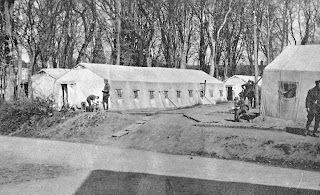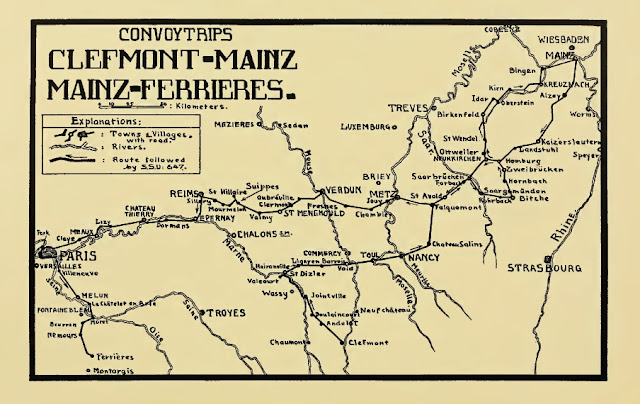Just five days after arriving in camp at Le Douet Grant and his comrades were beset by boredom and frustration. The fighting had ceased five months before and yet they had no certain information about when they would sail home.
He cabled his fiance, Dorothy, that he was delayed, and it cost him the equivalent of nearly $36 in today's market. He was so broke that he couldn't afford a second telegram to his family in Minnesota, and asked Dot to "forward" the message. In this age of Twitter and texting, it's difficult to fathom a mode of communication that was considered the texting of its day taking two days or more to reach its intended recipient.
At least the pastries were good...
Monday, April 14, 1919:
No new dope. Dirk, Hap, Fratz and I went to Nantes this P.M. Sent Dot the following cablegram: "Section held at Port. Home soon. Forward folks." It cost me 17 frs. 40 c. My supply of cash is low so I couldn’t afford one to the family. Dot should receive the cablegram day after tomorrow. We spent the rest of our four hours in eating chocolate eclairs. The pastries in this town are marvelous.
Tuesday, April 15:
Absolutely nothing new. The weather is rotten. Cold, windy and rainy. The only good day we have had since our arrival here was Sunday afternoon. They say it rains 360 days out of the year down here. Some hole to put a bunch like this in and there to wait indefinitely. There are not even encouraging reports anymore. No chance to get athletics started--no fields and all water. Our quarters are cold and uncomfortable with no place to sit except on the floor. Cafe hours are 12-2 and 6-9. During these hours there is a mad rush for the warm places. The rest of the time we just loaf when not on detail.
Lieutenant Smith is Camp Adjoint [assistant or substitute]. He is doing everything he can for the good of the contingent, but he has as his superior officer a West Point Colonel who is quite obstinate and the other officer of this contingent are very inefficient. I sure feel sorry for the Lieut.
At the YMCA last night watching a basketball game between the Fatimas and Camels when a large YMCA man came up and asked my name.
“Willard from Mankato?” he asked.
“The same,” I replied.
Whereupon he fell on my neck and told the assembled multitude many things about myself which I had never heard before. His name is Guy Smith. I know who he is now, but he had me guessing for awhile. Was glad to see him and hope we meet again.
























